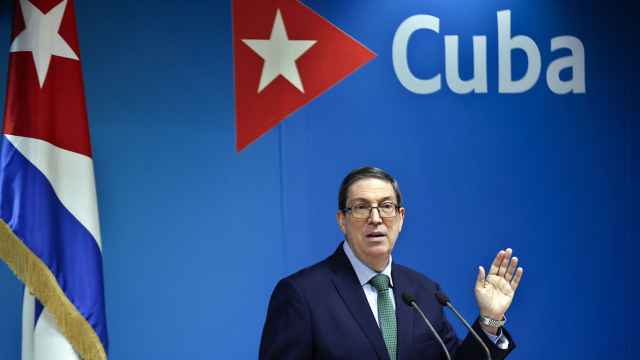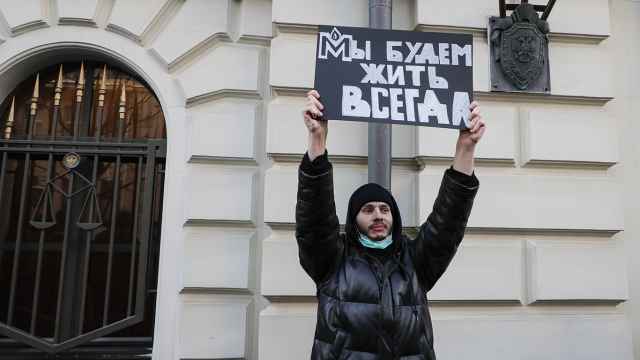On the heels of Kremlin statements against the extended rule of Igor Smirnov — leader of the breakaway Moldovan republic of Transdnestr — Russia's consumer protection chief Gennady Onishchenko has announced a possible ban on imports of cognac from the region.
"In the near future, we will be taking a whole row of measures in regard to Transdnestr. Questions have arisen in regard to the infamous KVINT cognac. We may be imposing limits on its importation," Onishchenko said Friday.
A spokesman at the KVINT distillery in Tiraspol — capital of the Transdnestr region — who declined to be named, told The Moscow Times that they had not received any formal paperwork on the issue.
An executive at the plant, who also preferred not to be identified, told Reuters that KVINT cognac meets quality standards and that Onishchenko's allegations were "a disgrace."
Onishchenko's comments came a day after Kremlin chief of staff Sergei Naryshkin expressed his view of Smirnov's rule.
"We advised Igor Smirnov to open the path for new political forces that could guide the region out of its social crisis," Naryshkin said, RIA-Novosti reported. "I think that [Smirnov] made a mistake … he did quite a bit for the republic in the beginning, but he has been governing 20 years already and now is running for a fifth term."
Transdnestrian elections are set for Dec. 11, and United Russia has demonstrated support for Anatoly Kaminsky, speaker of the parliament and leader of the Renewal party.
"The candidate from the Renewal party, Anatoly Kaminsky, may be the worthy candidate," Naryshkin said, RIA-Novosti reported.
Prime Minister Vladimir Putin also sent an open letter to Kaminsky on Sept. 17, the day of Renewal's congress, demonstrating support. Kaminsky attended the United Russia congress in Moscow earlier this month at the personal invitation of Duma speaker Boris Gryzlov.
"For me, this announcement [of the potential cognac ban] is very surprising, … today we need assistance … most importantly the opportunity to produce and sell our products. Especially for outstanding products such as our cognac," Kaminsky said, business newspaper Vzglyad reported.
Such product bans have been part of the political landscape in the past.
Moscow banned Moldovan wine in 2006 after Moldovan officials signed a new customs regime with Ukraine — a deal that Transdnestr labeled an "economic blockade."
Russia again banned imports of wine from Moldova last year, shortly after the former Soviet republic irritated Moscow by adding Soviet Occupation Day to its calendar of national holidays.
Importing wine and bottled Borjomi water from Georgia into Russia has been prohibited since 2006; however, earlier this month Onishchenko announced the possibility of permitting Georgian wine back onto the market by the end of this year.
The developments follow discussions in March between the EU and Russia, at which Foreign Minister Sergei Lavrov offered to dismantle three ammunitions depots located on the territory of Transdnestr — a major point of contention in the almost 20-year-long negotiations over the region's future.
A Message from The Moscow Times:
Dear readers,
We are facing unprecedented challenges. Russia's Prosecutor General's Office has designated The Moscow Times as an "undesirable" organization, criminalizing our work and putting our staff at risk of prosecution. This follows our earlier unjust labeling as a "foreign agent."
These actions are direct attempts to silence independent journalism in Russia. The authorities claim our work "discredits the decisions of the Russian leadership." We see things differently: we strive to provide accurate, unbiased reporting on Russia.
We, the journalists of The Moscow Times, refuse to be silenced. But to continue our work, we need your help.
Your support, no matter how small, makes a world of difference. If you can, please support us monthly starting from just $2. It's quick to set up, and every contribution makes a significant impact.
By supporting The Moscow Times, you're defending open, independent journalism in the face of repression. Thank you for standing with us.
Remind me later.





